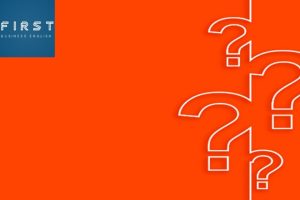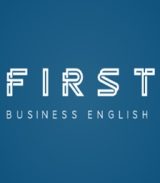
The 12 English Language Tenses – First Business English
- Posted by Ryan Anthony
- Categories Blog
- Date February 23, 2025
First Business English has provided here the English language twelve tenses, which are divided into four categories: simple, progressive, perfect, and perfect progressive. Each tense is used to express a different aspect of time, such as past, present, and future, as well as the duration and completion of actions. We also provide a definition and explanation of each tense including practical examples.
- Simple Present Tense: This tense is used to describe actions that are habitual, general truths or facts, and events that happen in the present. Example: “I eat breakfast every day.”
- Present Continuous Tense: This tense is used to describe actions that are happening right now, ongoing actions, and future actions that have been planned or arranged. Example: “I am eating breakfast right now.”
- Simple Past Tense: This tense is used to describe completed actions in the past. Example: “I ate breakfast yesterday.”
- Past Continuous Tense: This tense is used to describe actions that were ongoing in the past. Example: “I was eating breakfast when the phone rang.”
- Present Perfect Tense: This tense is used to describe actions that happened at an unspecified time in the past and have a connection to the present. Example: “I have eaten breakfast today.”
- Present Perfect Continuous Tense: This tense is used to describe ongoing actions that started in the past and continue up to the present. Example: “I have been eating breakfast for 30 minutes.”
- Past Perfect Tense: This tense is used to describe completed actions that happened before another action in the past. Example: “I had eaten breakfast before I went to work.”
- Past Perfect Continuous Tense: This tense is used to describe ongoing actions that had started and continued up to a specific time in the past. Example: “I had been eating breakfast for 30 minutes before I had to leave for work.”
- Simple Future Tense: This tense is used to describe actions that will happen in the future. Example: “I will eat breakfast tomorrow.”
- Future Continuous Tense: This tense is used to describe actions that will be ongoing at a specific time in the future. Example: “I will be eating breakfast at 8 am tomorrow.”
- Future Perfect Tense: This tense is used to describe actions that will have been completed by a specific time in the future. Example: “I will have eaten breakfast by 9 am tomorrow.”
- Future Perfect Continuous Tense: This tense is used to describe ongoing actions that will have been happening for a specific amount of time by a certain time in the future. Example: “By 9 am tomorrow, I will have been eating breakfast for an hour.”
About First Business English
First Business English is a premium business English language online education center that provides individuals and groups the opportunity to learn Business English that enhances their careers and lives through a structured Business English curriculum. Contact Us
Ryan Anthony is an enthusiastic, self-motivated, reliable Online Business English language tutor who is learner focused and highly adaptable. Bachelor of Business Studies Degree educated with extensive IT Support, Call Centre Management, Retail Management and English Language Teaching experience.
You may also like

The Pros And Cons Of Freelancing As A Career

The Effect Of Prices And The Cost Of Living




